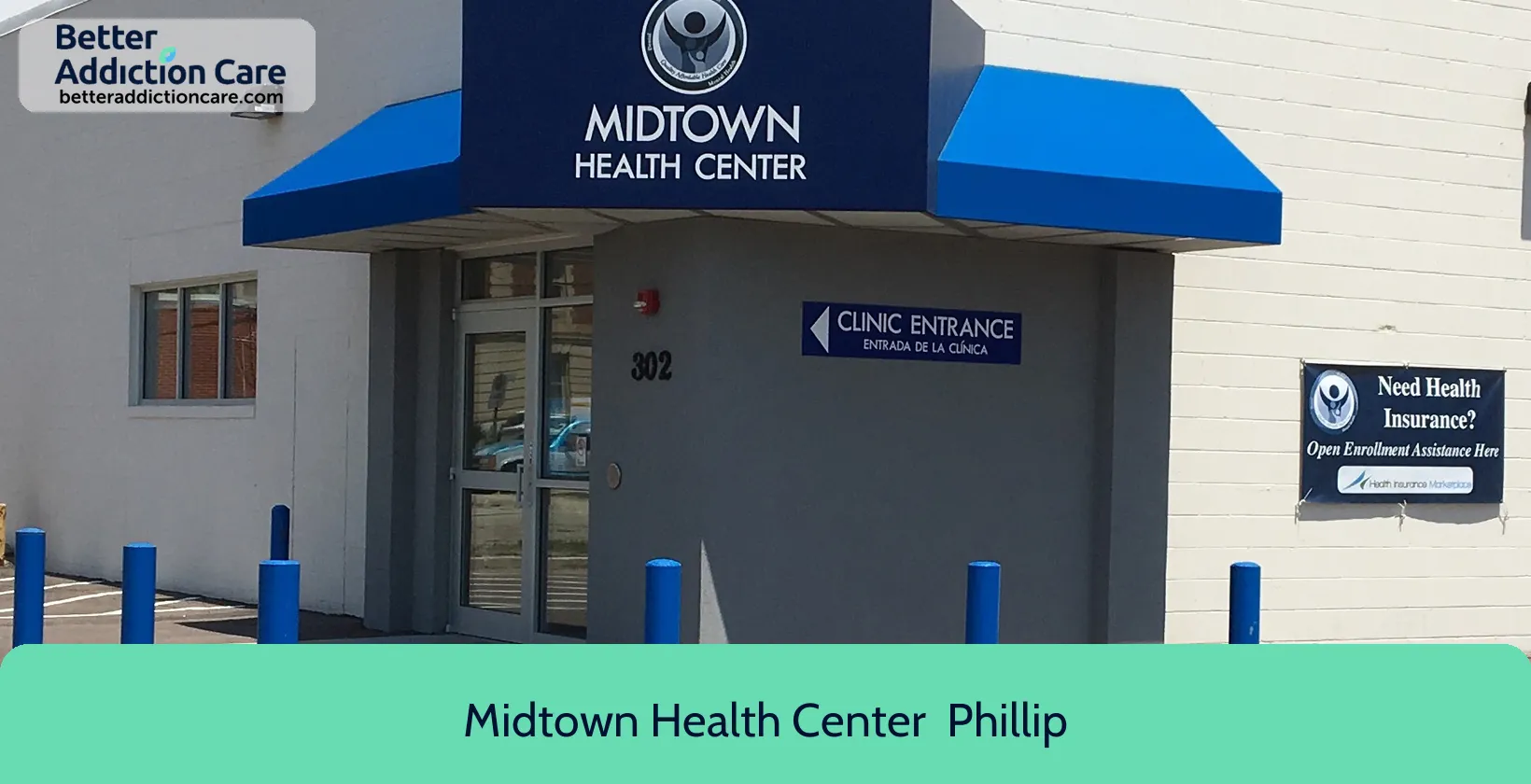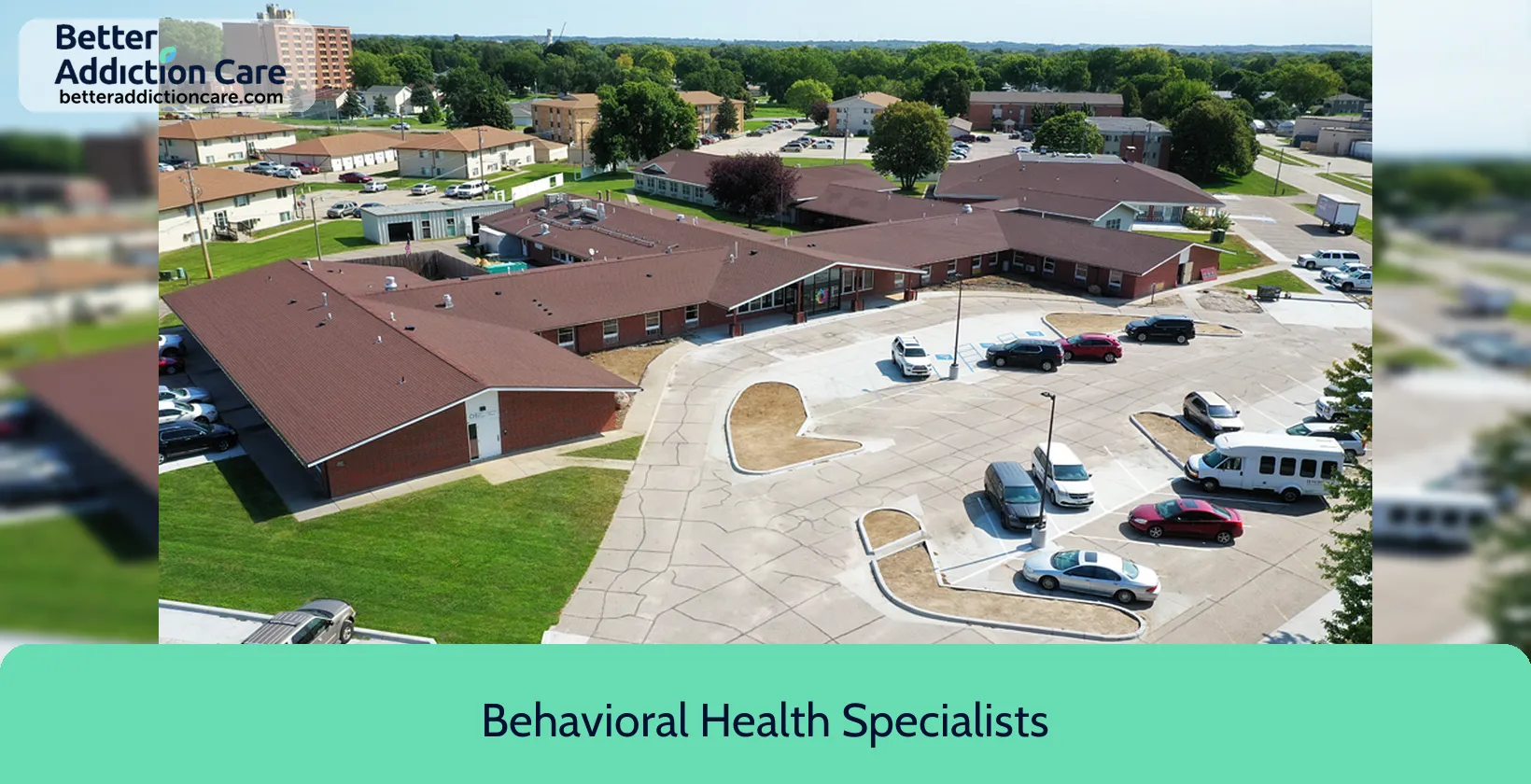Behavioral Health Specialists
Overview
Behavioral Health Specialists is a substance abuse treatment center for people seeking treatment near Madison County. As part of their treatment modalities for recovery, Behavioral Health Specialists provides individual psychotherapy, couples/family therapy, and cognitive behavioral therapy during treatment. Behavioral Health Specialists is located in Norfolk, Nebraska, accepting cash or self-payment for treatment.
Behavioral Health Specialists at a Glance
Payment Options
- Cash or self-payment
- Medicaid
- Medicare
- State-financed health insurance plan other than Medicaid
- Private health insurance
Assessments
- Screening for tobacco use
- Comprehensive mental health assessment
- Comprehensive substance use assessment
- Interim services for clients
- Outreach to persons in the community
Age Groups
- Adolescents
- Children/adolescents
- Young adults
- Adults
- Seniors
Ancillary Services
- Case management service
- Education services
- Psychosocial rehabilitation services
- Suicide prevention services
- Domestic violence services, including family or partner
Highlights About Behavioral Health Specialists
6.96/10
With an overall rating of 6.96/10, this facility has following balanced range of services. Alcohol Rehabilitation: 8.00/10, Drug Rehab and Detox: 6.00/10, Insurance and Payments: 6.00/10, Treatment Options: 7.82/10.-
Alcohol Rehabilitation 8.00
-
Treatment Options 7.82
-
Drug Rehab and Detox 6.00
-
Insurance and Payments 6.00
Accreditations
The Joint Commission:

The Joint Commission's addiction and behavioral health accreditation signifies a facility's commitment to high-quality care. It involves rigorous evaluations and assessments of clinical practices, ensuring effective, evidence-based treatment. Accreditation showcases a dedication to continuous improvement and patient safety, instilling trust among patients, families, and healthcare professionals. It's a mark of excellence in addiction and behavioral health care.
Treatment At Behavioral Health Specialists
Treatment Conditions
- Mental health treatment
- Alcoholism
- Substance use treatment
- Co-occurring Disorders
Care Levels
- Outpatient
- Intensive outpatient treatment
- Regular outpatient treatment
- Aftercare
Treatment Modalities
- Individual psychotherapy
- Couples/family therapy
- Cognitive behavioral therapy
- Integrated Mental and Substance Use Disorder treatment
- Telemedicine/telehealth therapy
Ancillary Services
Additional Services
- Pharmacotherapies administered during treatment
- Housing services
- Breathalyzer or blood alcohol testing
Special Programs
- Clients with co-occurring mental and substance use disorders
- Persons 18 and older with serious mental illness (SMI)
- Clients who have experienced trauma
Get Help Now
Common Questions About Behavioral Health Specialists
Contact Information
Other Facilities in Norfolk

6.89

6.59

6.56

6.89

7.08

7.29

7.20

6.65
DISCLAIMER: The facility name, logo and brand are the property and registered trademarks of Midtown Health Center - Phillip Avenue, and are being used for identification and informational purposes only. Use of these names, logos and brands shall not imply endorsement. BetterAddictionCare.com is not affiliated with or sponsored by Midtown Health Center - Phillip Avenue.

